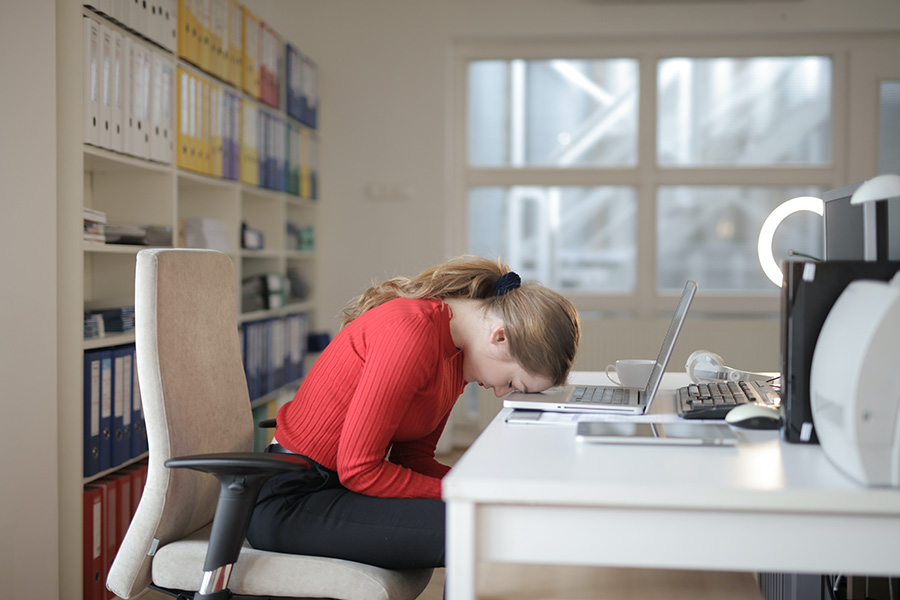It is an unfortunate fact of life that spending the majority of our adulthood at a job is a reality. In addition to an American workday that averages 9.5 hours, a Sleep in America poll we looked at found that each week, Americans are spending more than four extra hours working from home – a statistic undoubtedly fueled by the post-pandemic climate.
The other side of that coin is the fact that more work often equates to less sleep, with this same aforementioned survey finding that during workdays, respondents’ sleep time was cut by an hour and a half compared to their “days off” sleep. Indeed, while stressful work schedules can directly affect sleep, the reverse is also true – that is, work performance can be detrimentally impacted by lack of sleep. Sleep deprivation can not only leave us feeling highly fatigued but less creative, all while creating a challenge to remain focused on projects deemed important.
Let’s now get into the weeds on this a bit, as understanding the connections between job performance and sleep can provide the tools and knowhow needed to stop this vicious cycle. What’s more, creating a boundary between home and work life can be challenging when first starting out, but believe us when we say it’s a vital step towards both more consistent job performance and better sleep.
How Work is Actually Affected by Sleep
Nearly every system in the human body is supported by the process of sleep, and it’s become something of a no-brainer to imagine Americans being chronically sleep-deprived – according to the CDC, almost one-third of the U.S. population experiences less than six hours of sleep each night. This extreme fatigue inevitably bleeds into the workplace, significantly impacting job performance; without sufficient rest, body processes operate at what can only be described as a “suboptimal level.” The brain’s neurons become overworked, ultimately impacting thinking while slowing physical reactions and leaving us feeling emotionally drained – but these sleep deprivation short-term side effects can have even more dire consequences with regard to increased risk of heart disease, obesity, dementia and cognitive decline.
Actual Prices to be Paid in the Workplace
Some of the sleep loss effects in the workplace include (but are certainly not limited to):
- More challenging to maintain attention, focus and vigilance.
- More difficult to stay focused on long tasks that demand concentration, as feeling tired and attempting to remain awake eats up a great deal of mental energy.
- Decrease in focus due to “microsleeps” – momentary (0.5 to 15 second) non-responsive episodes that yield attention lapses.
- Susceptibility to making errors and omissions, partially due to increased reaction times.
If a lack of sleep has been making you feel excessively fatigued at work, it might be time to make some changes. Let Sweet Sleep Studio keep you abreast of advancements in the areas of sleep disorders such as sleep apnea and insomnia by calling (913) 309-5963.




